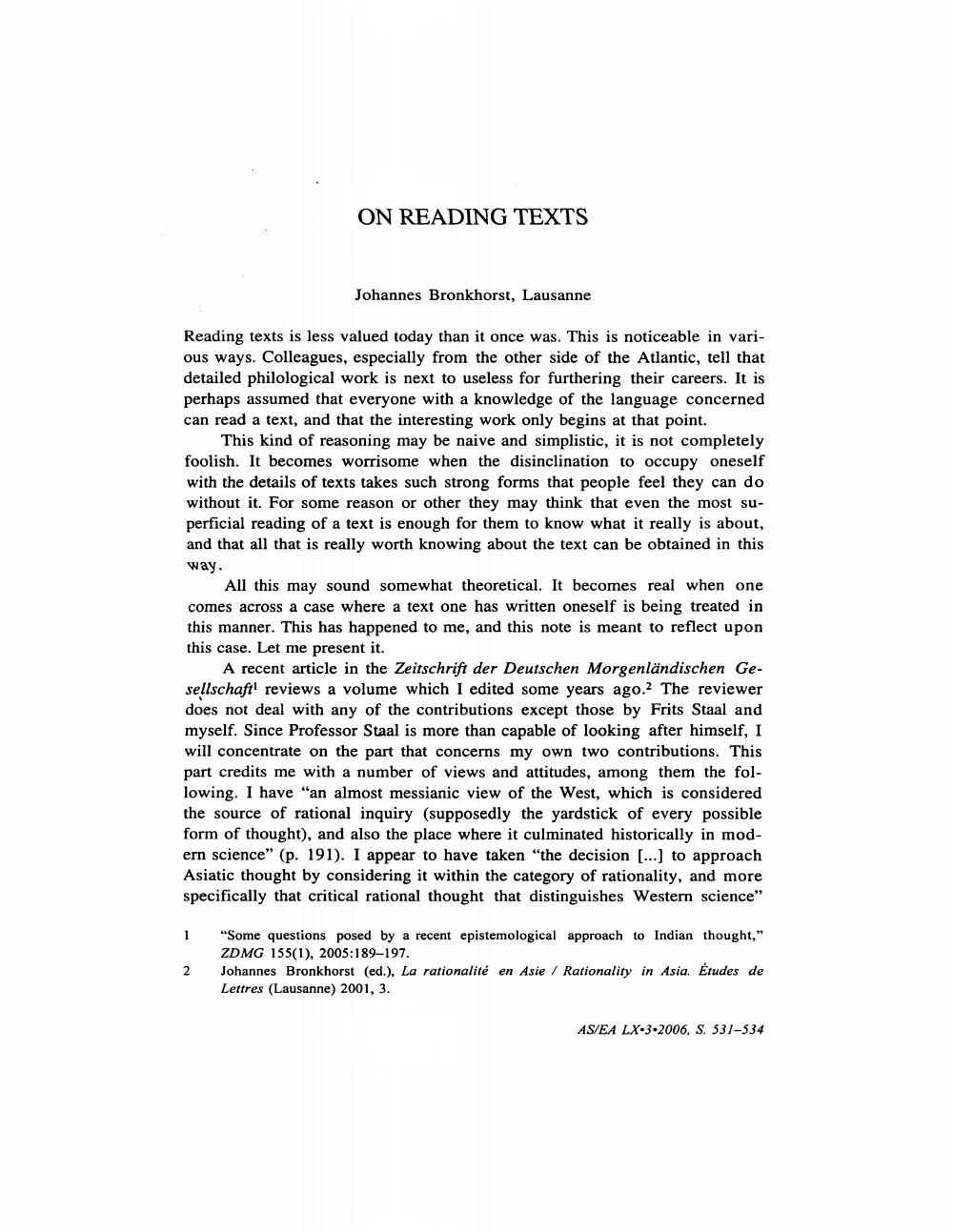________________
ON READING TEXTS
Johannes Bronkhorst, Lausanne
Reading texts is less valued today than it once was. This is noticeable in various ways. Colleagues, especially from the other side of the Atlantic, tell that detailed philological work is next to useless for furthering their careers. It is perhaps assumed that everyone with a knowledge of the language concerned can read a text, and that the interesting work only begins at that point.
This kind of reasoning may be naive and simplistic, it is not completely foolish. It becomes worrisome when the disinclination to occupy oneself with the details of texts takes such strong forms that people feel they can do without it. For some reason or other they may think that even the most superficial reading of a text is enough for them to know what it really is about, and that all that is really worth knowing about the text can be obtained in this way.
All this may sound somewhat theoretical. It becomes real when one comes across a case where a text one has written oneself is being treated in this manner. This has happened to me, and this note is meant to reflect upon this case. Let me present it.
A recent article in the Zeitschrift der Deutschen Morgenländischen Gesellschaftl reviews a volume which I edited some years ago.2 The reviewer does not deal with any of the contributions except those by Frits Staal and myself. Since Professor Staal is more than capable of looking after himself, I will concentrate on the part that concerns my own two contributions. This part credits me with a number of views and attitudes, among them the following. I have "an almost messianic view of the West, which is considered the source of rational inquiry (supposedly the yardstick of every possible form of thought), and also the place where it culminated historically in modern science" (p. 191). I appear to have taken "the decision [...] to approach Asiatic thought by considering it within the category of rationality, and more specifically that critical rational thought that distinguishes Western science"
1
"Some questions posed by a recent epistemological approach to Indian thought," ZDMG 155(1), 2005:189–197. Johannes Bronkhorst (ed.), La rationalité en Asie / Rationality in Asia. Études de Lettres (Lausanne) 2001, 3.
ASVEA LX 3.2006, S. 531-534




